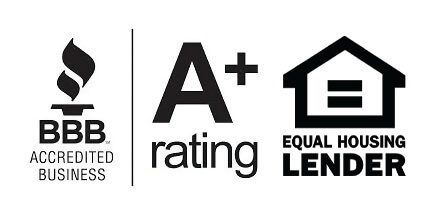NEWS: Will Coronavirus Decimate the Spring Home Buying Season?
Michael Bates
April 1, 2020
Will the economic crisis caused by the coronavirus pandemic destroy the spring home buying season in the U.S.?
No doubt, it will have a major impact – but some economists are forecasting that the usual surge of home buying activity will merely be delayed until later this year, as opposed to not happening at all.
Indeed the underlying factors that caused this current economic crisis are considerably different from the ones that caused the Great Recession that began in 2008.
For one thing, the U.S. economy was very strong and picking up steam going into this current crisis. Another major factor is simply that the pandemic could be short-lived: Some are predicting that the rate of infection will slow and the current shelter-in-place and social distancing measures will be lifted by May.
“Many still bear scars from the Great Recession and may expect the housing market to follow a similar trajectory in response to the coronavirus outbreak,” says Mark Fleming, chief economist for First American, in the company’s monthly Real House Price Index report. “But, there are distinct differences that indicate the housing market may follow a much different path. While housing led the recession in 2008-2009, this time it may be poised to bring us out of it.
“Of course, the housing market will not go unscathed, as consumer confidence and a strong labor market are essential in the decision to purchase a home,” Fleming says. “Yet, this time, housing is a casualty of a public health crisis turned economic, not the cause of an economic crisis.”
Provided that mortgage rates remain near their historic lows, the current crisis could lead to greater pent-up demand and a major resurgence in home buying activity once it passes.
One of the key differences between the housing market today versus the housing market of 2007 is that homes are not “overvalued” to the extent they were 13 years ago.
“Today, house-buying power is nearly twice as high as the median sale price of home, implying that housing is not overvalued, and is in fact in a much better position entering this potential recession than it was ahead of the last,” Fleming says.
Another key difference is the current lack of inventory.
“In 2018 – the latest full year for which we have comprehensive data – 1.2 million households were formed, while only 860,000 units were produced, resulting in a shortage of 340,000 units,” Fleming says. “Prior to 2009, the opposite was true, as housing supply significantly outpaced demand.
“The limited supply of homes positions the housing market to lead the recovery, once the impact from the coronavirus outbreak fades,” Fleming says. “In fact, it’s important to remember that the housing market has traditionally aided the economy in recovering from a recession. Consumers who are less affected by a downturn are willing to buy and sell, which can help get other parts of the economy moving.”
Yet another major difference between 2008 and today is that U.S. homeowners are far more “equity rich,” mainly as a result of rising home prices.
“The housing market today is not driven by liberal lending standards, sub-prime mortgages and highly leveraged homeowners, as shown by the fact that the household debt-to-income ratio is at a four-decade low,” Fleming says. “The housing crisis during the Great Recession was fueled heavily by the fact that job losses were paired with a significant share of homeowners who had little, if any, equity in their homes. Homeowners today have very high levels of tappable home equity, providing a cushion to withstand potential price declines.”
But what about unemployment? The record surge of unemployment claims resulting from the pandemic could result in millions of Americans losing their jobs – many of them in the service industry, including hospitality, retail and leisure.
“There are over 130 million workers in the overall service sector, which accounts for 86 percent of total non-farm employment, so job losses are expected to be high in this labor-intensive sector,” Fleming says. “Of course, the housing market will not go unscathed, as consumer confidence and a strong labor market are essential in the decision to purchase a home. Yet, this time, housing is a casualty of a public health crisis turned economic, not the cause of an economic crisis.”
First American’s Real House Price Index shows that real house prices increased 0.1% in January compared with December but were down 3.8% compared with a year ago.
Consumer house-buying power – how much one can buy based on changes in income and interest rates – increased 1.4% compared with December and was up 13.2% compared with January 2019.






